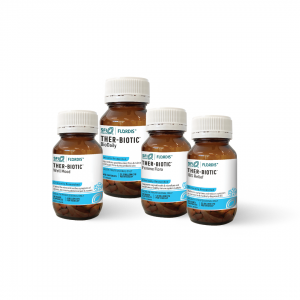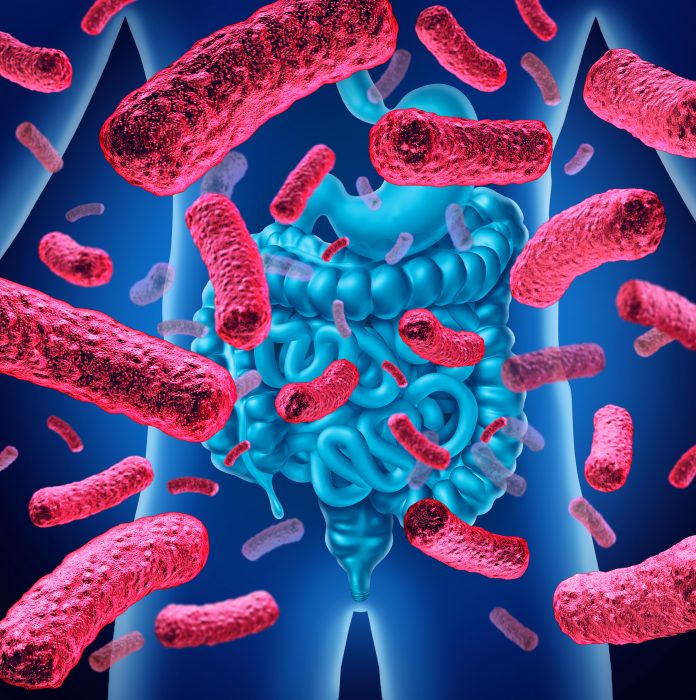We’ve often heard about the ‘microbiome’ and its importance in terms of health and well-being. But what exactly is the microbiome, particularly in the context of gut health? Here, we take a closer look at this topic, and the role of pharmacists in ensuring customers are provided with the optimal probiotics that support their individual microbiome needs.
Harvard School of Public Health (HSPH) explains the microbiome in the context of a “bustling city on a weekday morning, sidewalks flooded with people rushing to get to work or appointments”. On a microscopic level, says Harvard, the microbiome is similar in that it consists of a bustling environment of “trillions of microorganisms – called microbiota or microbes – of thousands of different species”, which include “bacteria, fungi, parasites and viruses”.1
“In a healthy person, these “bugs” coexist peacefully, with the largest numbers found in the small and large intestines but also throughout the body,” said HSPH, adding that the microbiome has many key roles in the body, including “in promoting the smooth daily operation of the human body”.
Some of these roles, according to the US-based Nutritional Human Genome Research Institute (NHGRI)2, include aiding the digestion of food, supporting brain and heart health3, and supporting the immune system.
“They’re basically taking up all the space so that pathogens that might want to try to invade humans don’t have the opportunity,” the NHGRI said.2
The microbiome also plays a role in intestinal conditions such as irritable bowel syndrome and inflammatory bowel disease, both complex conditions.4
While we can help to optimise our microbiomes through our diet (especially one rich in prebiotics and probiotics) and lifestyle choices, another way to help here is through supplementation with probiotics.
The UK’s NHS website explains that “probiotics are live bacteria and yeasts promoted as having various health benefits”.
Probiotics come in the food we eat and can also be consumed as an oral probiotic supplement – a convenient way of supporting dietary probiotic intake.
Probiotics “are thought to help restore the natural balance of bacteria in your gut when it’s disrupted by an illness or treatment”.5
Working in the probiotic space
A company doing innovative work in the probiotic space is SFI Health – Home of Flordis.
SFI Health says they have a range of shelf-stable probiotic products available, each containing a unique blend of probiotic strains, which, according to the company, are chosen for the wide range of health benefits that they support beyond our gut health.
The company launched four therapeutic probiotics in 2022, under the ‘THER-BIOTIC” brand.
“Each of these products has been developed with a strict adherence to the clinical research, to meet specific health needs in Australia,” SFI Science and Education Manager Simone Barrance said.
The products in the THER-BIOTIC range were developed using “clinically researched strains, in the optimal therapeutic dose, to deliver targeted health benefits”.
Ms Barrance adds that all of the products in the THER-BIOTIC range support general gut health and immune system function. “Each product has also been designed to support specific ways our gut microbiome influences our wider health.”
The THER-BIOTIC range
The THER-BIOTIC range includes:

- THER-BIOTIC BioDaily:
- “Restores gut flora, support healthy digestive system function and immune system function.”
- “THER-BIOTIC BioDaily can also be used both during and after antibiotic use to maintain beneficial gut flora.”
- THER-BIOTIC Femme Flora:
- “Helps to support vaginal health and microflora and stimulates a healthy immune system response.”
- “THER-BIOTIC Femme Flora is an oral probiotic that supports vaginal health through the gut-vagina axis, supported by multiple human clinical trials on the therapeutic strains used.”
- THER-BIOTIC Well Mood:
- “Helps to reduce symptoms of mild anxiety and calms the mind.”
- “THER-BIOTIC Well Mood also helps to relieve the physical symptoms caused by stress, such as abdominal pain and nausea.”
- THER-BIOTIC IBS Relief:
- “Helps relieve symptoms of medically diagnosed irritable bowel syndrome (IBS), including decreasing flatulence, abdominal pain, and bloating.”
- “THER-BIOTIC IBS Relief also reduces the occurrence of symptoms, keeping IBS at bay.”
Choosing the right probiotic
There are various probiotic options on the market, each promising various strains, and therapeutic benefits – so it can be hard for pharmacists to know which probiotic is the right option for their patients.
“Pharmacists should dive into the wide range of educational materials that are available to really understand the different probiotic strains available and how they can support their patient’s needs,” Ms Barrance advised.
It’s important, she adds, that, when recommending probiotic products, pharmacists consider:
- “The quality of the research that supports the product claims.”
- “Whether the research reflects the specific strains in the product.”
- “Whether the product reflects the CFU count (therapeutic dose) from the research.”
- “Whether the product reflects the same delivery method as the research.”
Ms Barrance underscores the importance of pharmacists recommending probiotics that “they are confident will deliver the desired therapeutic benefit”.
Delivering the therapeutic benefit is one of the key elements within product development at SFI Health.
Ms Barrance says the company “sticks strictly to the guidance that comes from quality clinical research and only uses the specific probiotic strain in the appropriate CFU count that is recommended to deliver specific health benefits”.
“Ultimately it all comes down to confidence in the probiotic product taken, and whether it will deliver the correct therapeutic benefit,” Ms Barrance said. “We believe that adhering to research is the most appropriate way to achieve this.”
SFI Health’s probiotic checklist
A useful guide for pharmacists to use when recommending probiotics has been developed by SFI Health – ‘What to look for when recommending probiotics to your patients’.
When considering probiotic options, the guide considers the following steps:
- Step 1: Strain:
- “Does the product contain strain-specific probiotics?”
- “Are the probiotics supported by robust clinical research?”
- Step 2: Formulation:
- “Does the formula contain any ‘filler’ strains lacking evidence relevant to product claims?”
- “Are any active ingredients included in the clinical research but missing in the final product?”
- Step 3: Dose and Delivery:
- “Are the strains provided in the same CFU count as studied in the research?”
- “Does the product mode of delivery match what was used in the research?”
Pharmacists can learn more about SFI Health’s THER-BIOTIC range at flordis.com.au/products and can register to SFI Health’s Healthcare Professional site at flordis.com.au/health-professionals/ to access the probiotic recommendation guide, product-specific clinical materials, research overviews evaluating unique probiotic strains, and their wide range of other healthcare professional materials.
ALWAYS READ THE LABEL AND FOLLOW THE DIRECTIONS FOR USE
References:
- hsph.harvard.edu/nutritionsource/microbiome/
- genome.gov/genetics-glossary/Microbiome
- healthline.com/nutrition/gut-microbiome-and-health#TOC_TITLE_HDR_3
- healthline.com/nutrition/gut-microbiome-and-health#TOC_TITLE_HDR_10
- nhs.uk/conditions/probiotics/
Additional references for THER-BIOTIC claims:
- Del Piano, et al. 2010, Journal of Clinical Gastroenterology, Vol. 44, S30–S34.;
- Reid, G, et al. 2003, ‘Oral use of Lactobacillus rhamnosus GR-1 and L. fermentum RC-14 significantly alters vaginal flora’, FEMS Immunology & Medical Microbiology, Vol. 35, No. 2, pp.131-134. Funded by Procter and Gamble, NSERC and Kidney Foundation of Canada
- Diop, L, et al. 2008, ‘Probiotic food supplement reduces stress-induced gastrointestinal symptoms in volunteers: a double-blind, placebo-controlled, randomized trial’, Nutrition Research, Vol.28, No. 1. Sponsored by Lallemand SAS.
- Ducrotté, P et al. World J Gastroenterol. 2012;18:4012-18. Funded by Rosell Lallemand and Probi AB.
This feature was originally published in the April issue of Retail Pharmacy magazine.








